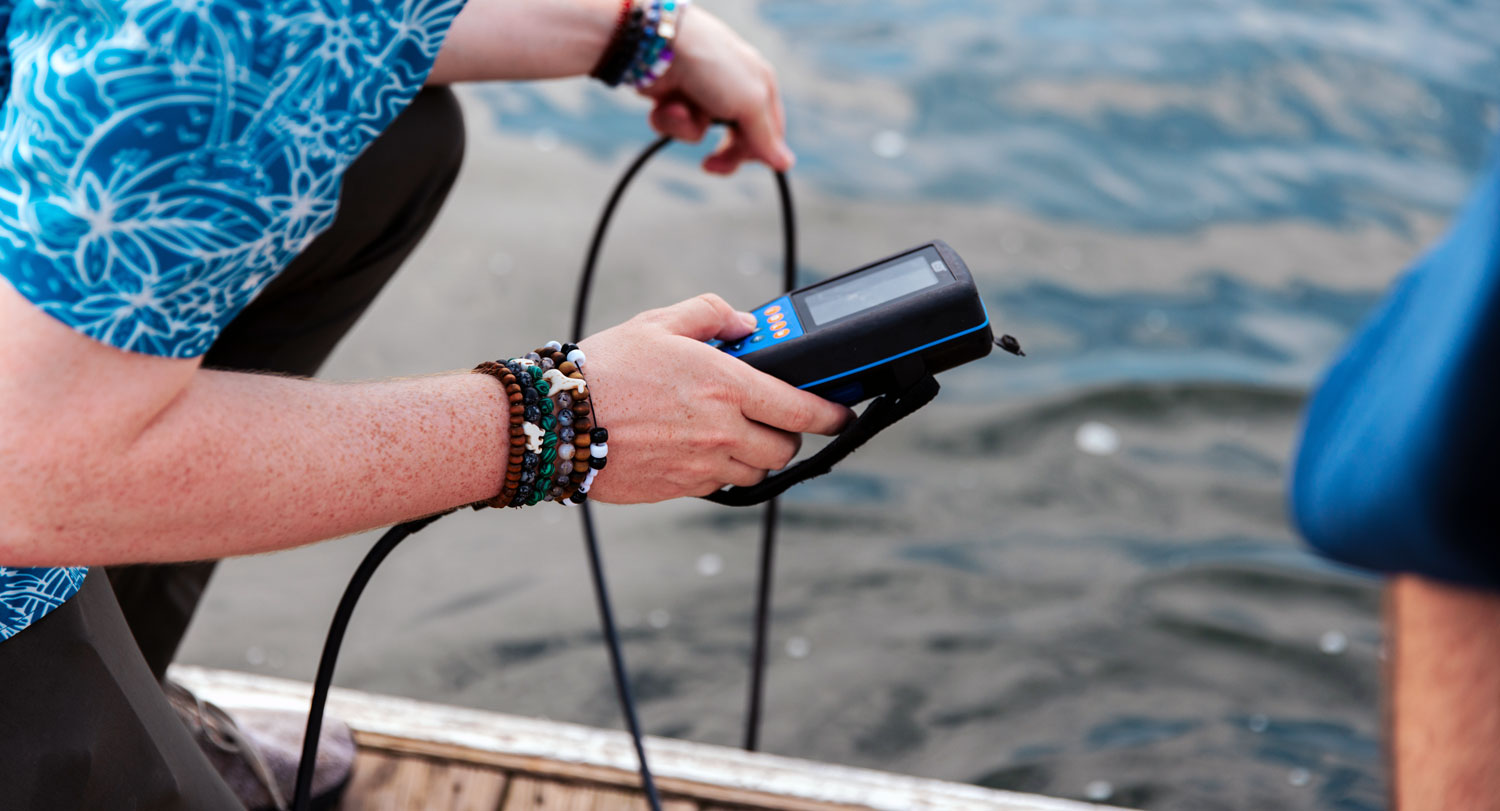
In its first year of operation, USC’s Institute for Clean Water has launched a partnership with the state Department of Environmental Services to provide detailed analyses of water samples collected monthly from 35 sites across South Carolina.
The university’s initiative, provided at no cost to the state agency, gives monitoring authorities a more comprehensive overview of water quality from vital sources of drinking water and bodies of freshwater frequented by tourists and outdoor enthusiasts. The enhanced water monitoring is especially crucial as the state’s population continues to grow and with it, an increased use of water for consumption, agriculture and recreation.
“Our scientists have the instruments and expertise to analyze water samples in a more in-depth way,” says Tammi Richardson, a USC marine science professor and director of the Institute for Clean Water. “We’re supplementing and supporting what DES does, helping them drill down a little deeper to identify harmful trends in South Carolina’s waterways before they become a major problem.”
Institute for Clean Water scientists look for several contaminants and toxins, including toxic algae and bacteria and traces of pharmaceutical compounds and other so-called “forever chemicals” that find their way into the state’s freshwater bodies. One such example includes per- and polyfluoroalkyl substances — PFAS — that are used in industrial applications and myriad consumer products such as non-stick cookware, paints, fabrics and personal care products.
“At the end of the day, the economic impact of tourism and recreation is one of the greatest contributors to the economy in South Carolina, if not the greatest, so we need to be aware of any misperceptions of the water quality in the state — both from residents and tourists."
“They tend to stick to particles in the water, which makes them dangerous to aquatic wildlife that ingest them,” Richardson says. “DES measures the basic suite of inorganic ions, but our labs can also look for bigger organic compounds that also fuel algal blooms.”
Continual water sampling analysis helps state authorities know when they should issue advisories about contaminated water in particular areas that threaten pets, livestock or humans, Richardson says.
The water sampling project is only the first of several planned initiatives by the Institute for Clean Water, which is also working to better coordinate the efforts of water researchers across the university and encourage more communication among scientists at other universities and agencies across the state. The institute’s advisory board includes staff from the National Oceanic and Atmospheric Administration, the state Department of Natural Resources and the federal Environmental Protection Agency.
Lori Pennington-Gray, endowed chair and director of the SmartState Center for Economic Excellence in Tourism and Economic Development, is one of the Clean Water Institute’s investigators who is leading efforts to measure public perceptions of water quality and conservation in South Carolina. To that end, her team has surveyed hundreds of residents and tourists to establish baseline opinion data.
“At the end of the day, the economic impact of tourism and recreation is one of the greatest contributors to the economy in South Carolina, if not the greatest, so we need to be aware of any misperceptions of the water quality in the state — both from residents and tourists,” Pennington-Gray says.
“In some instances, the water is clean, and people assume it’s not clean based on inaccurate information they’ve heard or read. But the opposite can happen — water in a particular place might not be as clean as people think it is, and there might be health precautions they need to pay attention to."
Other projects on the horizon for the Clean Water Institute include development of a drone that can collect water and perform field analysis on the fly. A beta version of the drone already has demonstrated its ability to carry out tasks much more quickly and efficiently than traditional gathering techniques with boats.